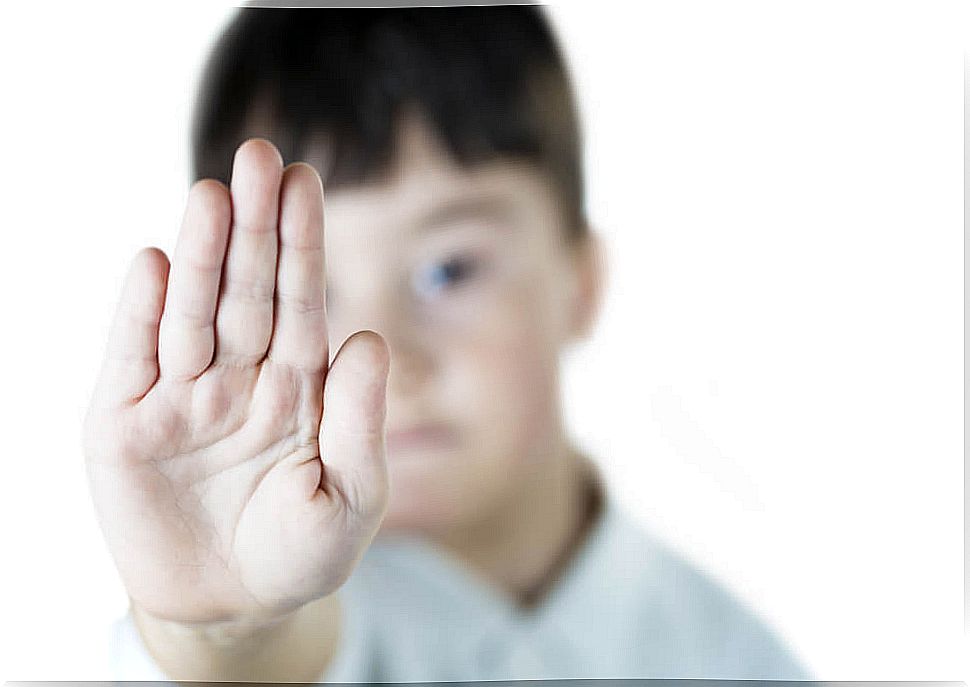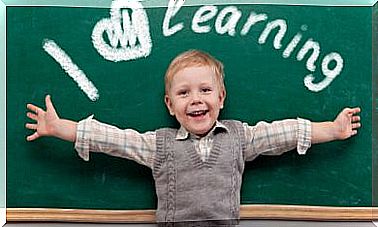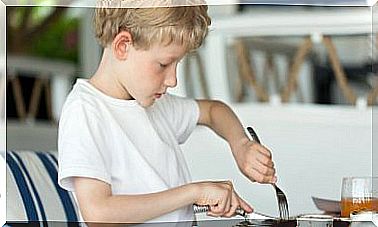Keys To Teach Our Children To Set Limits

As parents, we all strive to teach children to accept limits, but sometimes we forget that it is just as important that they learn to set them. Teaching our children to set limits from an early age will help them to have good self-esteem and healthy relationships.
What does it mean to set limits?
Limits help us structure our identity. From the moment we develop self-awareness and perceive ourselves as individual beings and separate from others, limits mark our way of relating.
To be able to do it in an adequate way, we must be able to know our needs and make them respect them and, therefore, respect ourselves. When we are not able to set limits, we let ourselves be carried away by life and by other people, something that leaves us with a great feeling of lack of control.
Therefore, setting limits implies taking control of our life. Knowing how to distinguish what I want and what I don’t want, and being able to express it. It implies being able to ask for what I want or need and to say “no” to a request that goes against my principles. It means knowing with certainty that, as a human being, I deserve respect and not being afraid to let the other know.

Above all, setting limits means not giving in to the requests or suggestions of others, even knowing that this can have consequences. Often saying no will cause a conflict with the other person, who may feel hurt or resort to emotional blackmail and guilt to change our mind.
It is precisely for this reason that many people find it difficult to set limits with their loved ones or authority figures.
The image of the good boy
Childhood has a lot of influence on the origin of this fear of saying no. When we are young, we are vulnerable and dependent, we need adults to survive and satisfy our needs. Therefore, our priority is that they serve us.
However, we often convey to children the idea that to be a ‘good boy’ you have to be docile, obedient and not resist. Sometimes, when the infant expresses anger or disagreement, when he screams or cries, he receives rejection or faces of dissatisfaction from his adults.
The child understands that this behavior is annoying and unpleasant and, since his priority is to keep the adult happy because he depends on him, his response is to repress himself. Learn to override their opinion and disagreement because you don’t want to disappoint, sadden, or anger adults.
In this way, as we grow older, the behavior continues and it becomes increasingly difficult to realize that we are giving up ourselves to please others.
Teach our children to set limits
Therefore, childhood is the ideal stage to teach the little ones that setting limits does not mean being selfish or being a bad person. It means loving and respecting yourself in order to love and respect others.

If you teach your little one to set limits, you will help him to know himself better, to know what he wants and to improve his self-esteem. This will help you establish healthy and harmonious relationships, where neither party feels invaded. In addition, you will achieve the enormous freedom of being able to show yourself as you are, without fear of disappointing anyone.
Keys to teaching our children to set limits
- Allow him to express his views with respect, even if they differ from yours. Do not make him feel that if he ‘rebels’ he loses your love, show him that his opinion matters and that it is courageous to express it.
- Explain that all people are valuable and deserve love and respect. And that we must not accept that nobody humiliates us or hurts us.
- Remind her that even if she loves someone very much, she doesn’t have to always agree with them. He can express his opinion, he can even refuse the other person’s requests, and that does not mean that the relationship is going to end.
- Let him know that the most important person in his life must be himself, and that it is not good to do things that he does not want just to gain the approval or friendship of others.










